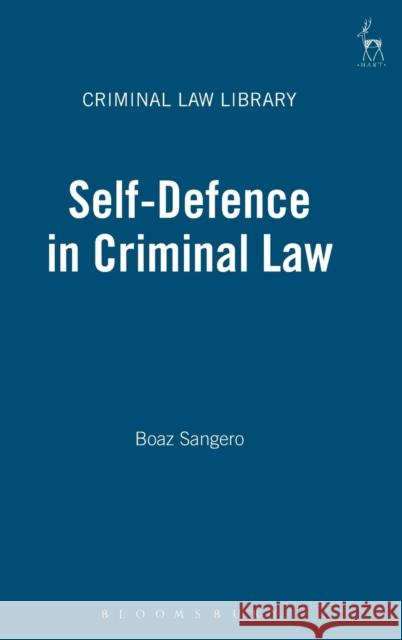Self-Defence in Criminal Law » książka
Self-Defence in Criminal Law
ISBN-13: 9781841136073 / Angielski / Twarda / 2006 / 394 str.
Self-Defence in Criminal Law
ISBN-13: 9781841136073 / Angielski / Twarda / 2006 / 394 str.
(netto: 484,00 VAT: 5%)
Najniższa cena z 30 dni: 495,76
ok. 30 dni roboczych

Darmowa dostawa!
Self-Defence in Criminal Law-the first volume in the Criminal Law Library series-combines a careful philosophical discussion of the rationale justifying self-defense with a detailed discussion of the range of statutory self-defense requirements, as well as discussions of numerous other relevant issues (i.e. putative self-defense, excessive self-defense, earlier guilt, and battered women). The book argues that before formulating definitions for each aspect of self-defense (necessity, proportionality, retreat, immediacy, mental element, etc.) it is imperative to determine the proper rationale for self-defense and, only then to derive the appropriate solutions. The first part contains an in-depth discussion of why society allows a justification for acts but does not excuse the actor from criminal liability. The author critically analyzes current theories (culpability of the aggressor; autonomy of the attacked person; protection of the social-legal order; balancing interests; choice of the lesser evil) and points out the weaknesses of each theory before proposing a new theory to explain the justification of self-defense. The new theory is that, for the full justification of self-defense, a balance of interests must be struck between the expected physical injury to the attacked person and the expected physical injury to the aggressor, as well as the relevant abstract factors: the autonomy of the attacked person, the culpability of the aggressor, and the social-legal order. The author demonstrates how ignoring one or more of these factors leads to erroneous results and how the proposed rationale can be applied to develop solutions to the complex questions raised.











